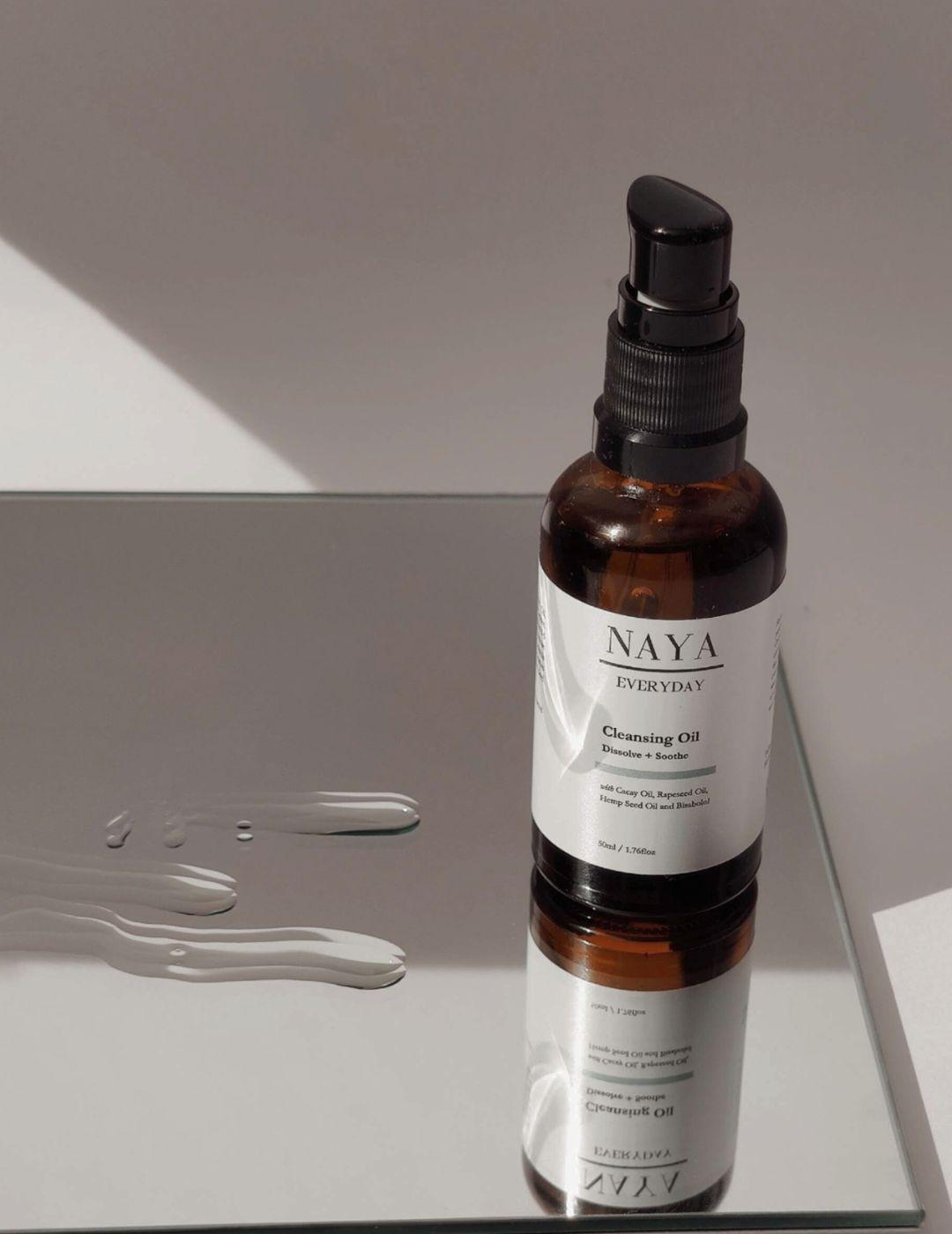Understanding the Role of Collagen in Skincare
Why is everyone has us talking about Collagen?
In the world of skincare, few elements hold as much importance as collagen. As the fundamental protein that bestows skin with its firmness, elasticity, and youthful radiance, collagen plays an essential role in upholding a healthy complexion.
At the core of my skincare philosophy lies a commitment to nurturing collagen production at a cellular level, achieved through the use of products, tools, and lifestyle adjustments, rather than resorting to invasive procedures.
But why does everyone wants us to believe Collagen is the miracle cure? Let's delve into the significance of collagen in maintaining youthful skin and explore my preferred strategies for enhancing its production.
What Exactly Is Collagen?
Collagen reigns as the most abundant protein within the human body, providing crucial structural support and strength to our skin, bones, muscles, tendons, and ligaments. It acts as the guardian of skin firmness, suppleness, and elasticity while significantly contributing to the renewal of skin cells.
Comprising amino acids, particularly glycine, proline, and hydroxyproline, collagen forms a unique triple-helix structure. This distinctive structure imparts remarkable strength and stability to the protein, rendering it indispensable in the body's connective tissues.
Beyond its structural role, collagen plays a vital part in wound healing and tissue repair. It fosters the growth of new blood vessels and the production of fresh skin cells, making it a favored ingredient in skincare products.
Collagen's Role in Preserving Youthful Skin
Collagen is the guardian of skin firmness, elasticity, and that enviable youthful glow. It also underpins the skin's ability to rejuvenate and repair itself.
When collagen levels in the skin wane, it ushers in a host of visible changes contributing to the signs of aging, including:
-
Fine Lines and Wrinkles: Collagen's structural support dwindles, resulting in the loss of skin firmness and elasticity. This leads to the development of fine lines and wrinkles, particularly in areas prone to repeated movement like the forehead, around the eyes, and the mouth.
-
Sagging and Loss of Firmness: Collagen's depletion weakens the skin's foundational structure, making it susceptible to gravitational forces. This manifests as sagging, primarily along the jawline, cheeks, and neck, imparting a less lifted and youthful appearance.
-
Thinning of the Skin: Collagen's decline can lead to thinner skin, causing blood vessels to become more visible. This can result in a translucent or fragile appearance, especially on the back of the hands.
-
Decreased Skin Resilience: Collagen is responsible for the skin's ability to bounce back after stretching or compression. As collagen levels decrease, the skin's resilience diminishes.
-
Impaired Wound Healing: Collagen is pivotal for effective wound healing. Its reduction can slow down the healing process of cuts, bruises, and other skin injuries, potentially leading to increased scarring.
-
Dryness and Dullness: Collagen depletion contributes to decreased skin hydration, resulting in a dry and lackluster complexion. This can compromise the skin's barrier function and elevate sensitivity.
Factors Leading to Collagen Depletion
Collagen loss in the skin is influenced by a blend of intrinsic and extrinsic factors. Understanding these factors and taking measures to mitigate their impact can help safeguard collagen production and sustain a more youthful appearance.
-
Age: The most prominent contributor to collagen loss is age. Collagen production naturally diminishes with the passage of time, driven by slowed cellular processes and reduced efficiency of collagen-producing fibroblast cells. This intrinsic factor lies at the heart of aging, fostering fine lines, wrinkles, and sagging skin.
-
UV Radiation Exposure: Exposure to UV radiation from the sun ranks among the most harmful external factors driving collagen loss. UV radiation generates reactive oxygen species (ROS) that induce oxidative stress, accelerating the breakdown of existing collagen and inhibiting its synthesis—an occurrence known as photoaging.
-
High-Sugar Diet: Excessive sugar in the bloodstream can form chemical bonds with collagen fibers through glycation, leading to the creation of advanced glycation end-products (AGEs). Over time, these AGEs accumulate and compromise collagen's structural integrity, rendering it less flexible and functional.
-
Smoking: Smoking introduces harmful chemicals into the body that impede blood flow and oxygen delivery to skin cells. This diminishes the vitality of fibroblasts and hinders their ability to produce collagen. Smoking also triggers the release of enzymes that degrade existing collagen fibers.
-
Environmental Pollutants: Airborne pollutants and toxins can provoke skin inflammation and oxidative stress. Persistent inflammation disrupts collagen synthesis and hastens its degradation, while oxidative stress generates free radicals that harm collagen fibers and interfere with the cellular processes responsible for collagen production.
-
Autoimmune Disorders: Certain autoimmune disorders, such as systemic lupus erythematosus (SLE) and rheumatoid arthritis, can lead to collagen loss. In these autoimmune conditions, the immune system erroneously targets healthy tissues, including collagen-rich connective tissues.
Strategies to Amplify Collagen Production Elevating natural collagen production through vitamin A and C-infused skincare products and the proper tools and devices constitutes integral aspects of a noninvasive skincare regimen.
While topical collagen creams and collagen oils may appear promising, there is regrettably no conclusive evidence supporting their anti-aging efficacy. Although topically applied collagen can aid skin hydration, its molecular weight remains too substantial to penetrate the epidermis and induce substantial effects.
Retinoids
Retinoids, including retinol, retinoic acid, and vitamin A, are indispensable for boosting collagen production, preserving a youthful complexion, and diminishing the appearance of wrinkles and fine lines. Vitamin A stimulates fibroblasts, the key collagen-synthesizing cells, and encourages the formation of robust collagen fibers in the skin. For my preferred vitamin A products, I turn to RENEW Cacay Oil + A.
The Importance of Topical Vitamin C
Vitamin C plays a crucial role in collagen production by serving as a cofactor for enzymes responsible for collagen synthesis. Moreover, vitamin C acts as a potent antioxidant, safeguarding collagen from the harmful effects of free radicals. This dual action ensures the resilience and durability of collagen fibers within the skin. You can explore our Antioxidant Defence Booster and Everyday Glow Serum.
Facial Massage
Massaging your face enhances blood circulation, delivering increased oxygen to your skin's tissues. This boost can promote the production of collagen and elastin. With just seven minutes a day of regular practice, you can witness remarkable results.
Lifestyle Tweaks for Collagen Conservation
While we can't halt the natural aging process, there are proactive steps you can take to safeguard collagen that go beyond skincare alone. As we mentioned earlier, the oxidative stress triggered by UV exposure accelerates collagen and elastin breakdown. Hence, your first line of defense should be sun protection. Whenever you spend more than 20-30 minutes outdoors with a high UV index, use sunscreen.
A well-balanced diet that includes specific essential nutrients can stimulate collagen production. High-protein foods rich in amino acids, such as eggs, fish, dairy, and meat, are pivotal for collagen synthesis. Other sources encompass anthocyanins in berries, copper found in shellfish and nuts, vitamin C present in oranges and strawberries, and vitamin A abundant in dark green leafy greens, sweet potatoes, mangoes, papayas, and carrots. Incorporating bone broth and collagen powders into your routine provides another effortless avenue to bolster anti-aging efforts and foster healthy tissues from the inside out.
Elevated cortisol levels can accelerate collagen degradation, resulting in diminished skin elasticity and premature aging. Consequently, effective stress management techniques, such as relaxation practices, regular exercise, and mindfulness, take on a central role in upholding collagen's integrity and promoting overall skin well-being.
Recognizing the repercussions of collagen depletion on the skin underscores the significance of integrating collagen preservation and reinforcement into your skincare regimen. By adhering to consistent practices that encourage collagen production and upkeep, you'll play a pivotal role in diminishing the visible markers of aging and sustaining skin that appears healthier and more youthful.









Hinterlasse einen Kommentar